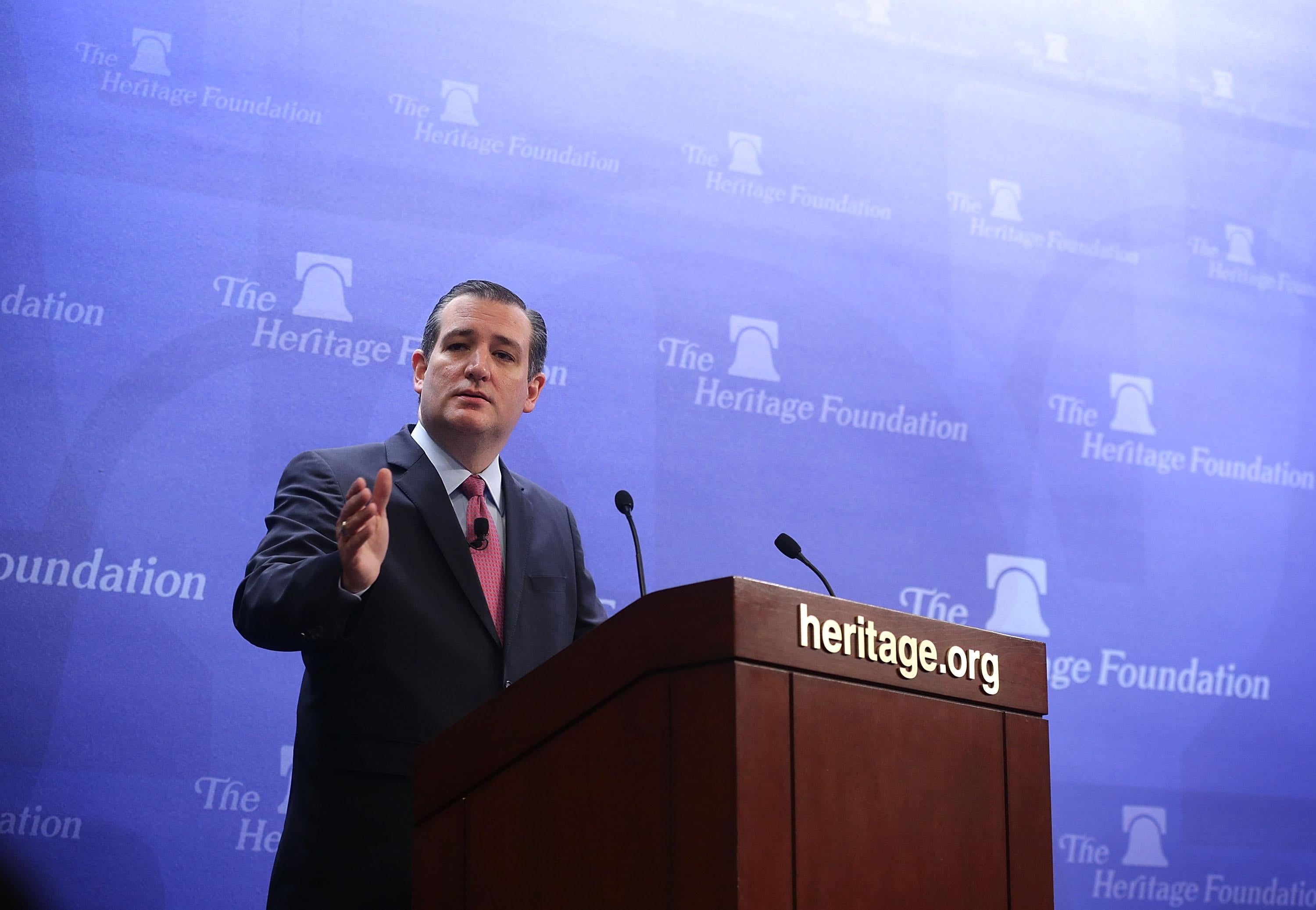Sen. Ted Cruz gave what was billed as a “major foreign policy speech” today at the Heritage Foundation, discussing his plans for defeating ISIS and “radical Islamic terrorism” generally. (Never in the history of American campaigns has anything been billed as a “minor foreign policy speech.”)
Given that Cruz believes America has “receded from the world stage” and is “increasingly viewed as irrelevant” under the Obama administration, which has pursued “a photo-op foreign policy of a bomb here and a missile there” rather than trying to defeat ISIS, you might expect that Cruz is promising a dramatically more aggressive policy to defeat the group. But the Cruz plan for taking on ISIS doesn’t differ dramatically from the airstrikes plus proxy war strategy the Obama administration is already pursuing to decidedly mixed effect.
Cruz made a point of saying the U.S. arm Kurdish peshmerga forces directly rather than worry about offending Baghdad, which the administration has probably been doing covertly to some extent for a while and may do more overtly soon. He also called for doing more to support the militaries of Jordan and Egypt, both of which are already fighting ISIS and are among the top five recipients of U.S. military aid. While he continued to criticize the Obama administration for pushing for the removal of Bashar al-Assad in the absence of a non-jihadist alternative, Cruz, like rival Marco Rubio, punted on the question of whether he would send in large numbers of U.S. ground troops to fight ISIS. This is the one major area where some members of his party have a substantive disagreement with the Obama administration, but not Cruz. He criticized rivals who tout ground troops as a “talismanic demonstration of military strength.”
But talismanic demonstrations of strength formed the bulk of Cruz’s address. Rather than present a different plan for getting rid of ISIS, Cruz simply attacked the president’s rhetoric, honing in on one of the most annoying debates of this campaign: whether the president should use the phrase “radical Islamic terrorism.”
“The strategy to defeat the enemy begins with calling it by its name,” Cruz said, continuing, “We need to take off the blinders of political correctness that prevent us from seeing what is right in front of us. That enemy is radical Islamic terrorism and it is trying to destroy our country and our way of life.”
This is a much less important debate than either side portrays it as. I understand why the president is reluctant to use the phrase, but if he did, I’m sure he could still make clear he is not referring to the religion as a whole. I also have a hard time imagining that it would meaningfully convey to ISIS that we mean business.
Cruz also objected to the phrase “lone wolves,” used in reference to attackers like those in San Bernardino. “These wolves are not lone—they are instead operating as an ideological pack. And the thing that unites them is their fanatical adherence to Islamic supremacism,” he said. The senator knows very well that “lone wolves” doesn’t mean that the attacks are completely random, just that they’re not organized by a larger group. But this is yet another way he can carve out a “difference” with Obama over the ISIS fight where very few exist.
Cruz has two main arguments for his fixation on semantics. One is that Americans are afraid to report on or object to Islamic fundamentalism for fear they might be labeled bigots—which doesn’t exactly sound like an accurate description of the current American political climate when it comes to Islam. The other is that clear language is needed to demonstrate “firm resolve” and “moral clarity.” Here, of course, he invoked Ronald Reagan and the old canard that the Iranians released American hostages in 1981 because they knew Ronald Reagan was a stronger leader than Jimmy Carter.
Ishaan Tharoor of the Washington Post argues that the GOP fixation on “radical Islam” is a xenophobic dog whistle (which Donald Trump turned into a bass trombone). That’s undoubtedly part of it, but I think Cruz and his cohorts focus on language for the same reason that Congress would rather debate refugees than war strategy: It’s a lot easier. Syria is certainly an unmitigated disaster and ISIS is certainly a dangerous threat, but other than sending in large numbers of ground troops—which only Lindsey Graham will unambiguously commit to—none of the candidates really have radically different proposals of how to win the war. So instead, they talk about how to talk about it.
